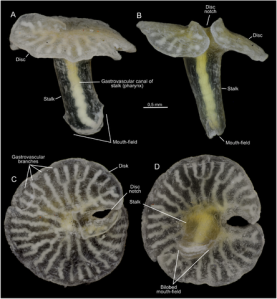Overweight and ready to take action?
Every year nearly 200,000 Americans opt for a more extreme, old-fashioned solution: surgery. Physically altering the size and shape of the stomach. wired.com
But it may be that drastically chopping up your gut makes the lasting change  by rearranging your internal bacteria.
by rearranging your internal bacteria.
You, and every human being, are a zoo of microbes – on your skin and inside your body. I’ve seen estimates that four pounds of your body weight isn’t you at all – it’s your resident flora and fauna. One of the things they do is secret hormones that supplement what your human organs provide.
You can’t yet buy a supplement that would place weight-loss bacteria into your unaltered gut, and most of those “as seen on TV” products are hooey. But “the end goal is to come up with a probiotic that can be used to enhance weight loss instead of surgery,” and it may be possible.
Wouldn’t that be nice? Or, at least, interesting? Like Alice’s mushroom, if one side makes you smaller will you need another to make you bigger?


